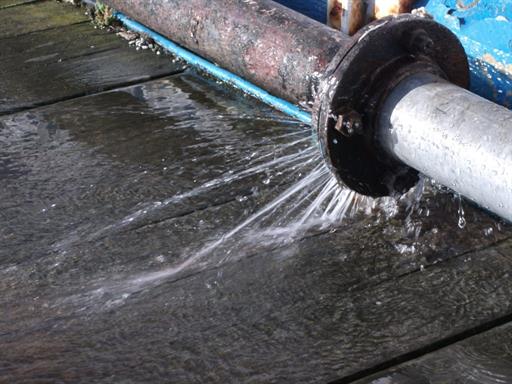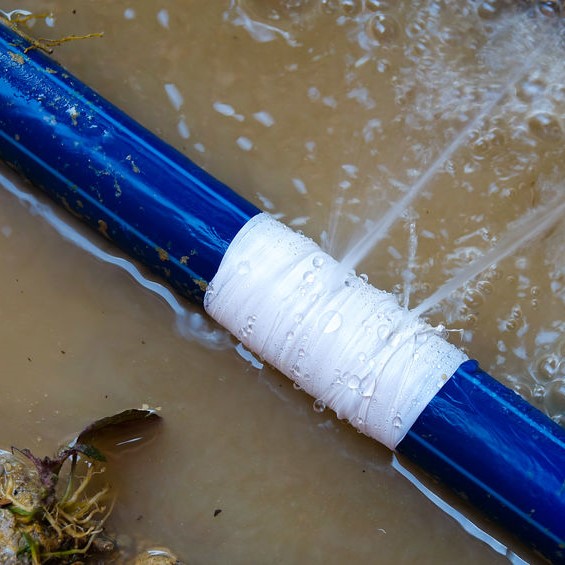Addressing Flood Damage Caused by a Broken Pipeline - Expert Advice
Addressing Flood Damage Caused by a Broken Pipeline - Expert Advice
Blog Article
Just about everyone maintains their private assumption about Water Damage: Tips On What To Do When Your House Is Flooded.

What should you do if a water pipe bursts in your house? The longer you wait, the much more severe the damage that can take place to your residential property. For these reasons, you need to learn just how to act in the occasion of a burst water pipe.
Shut down the Key Waterline Valve
The first thing to do? Close the shut-off shutoff. Try to find the regional shut-off valve to turn off the water in one specific location only. If you don't know where the local shut-off valve is, opt for the major water line valve as well as turn it off. This step will certainly remove the water immediately in your entire home. Usually, the primary shutoff is discovered outside the residence beside the water meter. If it's not there, you can likewise discover it in two places: in the cellar at eye degree or the first floor on the ground. Typically, contractors placed the shut-off shutoff generally ground level washroom or appropriate alongside it.
Call Water Damage Repair Pros for Aid
After shutting the water resource, call the specialists for aid. With their professional assistance, you can prevent a lot larger water damage including deformed walls, loose tiles, or harmed structures.
Record the Damage For Insurance policy
While you're waiting for the pros to show up, get some paperwork of the damages created by the errant pipeline. Do close-up shots of the harmed prized possessions and spots.
Recover Points That Can Be Saved
Take a look at the damaged products and take out the most crucial ones from the pile when you're done taking photos. Dry them off in a dry/warm place away from the broken location as well as try to maintain them as long as you can. Drag as much wetness as you can to the material so it can start to dry out.
Start the Drying Refine
You need to start the drying out process as soon as possible. Thankfully, the water from your waterlines is currently clean so you do not have to worry about sewage system water. Nevertheless, the moving water may have interrupted the dirt as well as debris in your carpets and floorboards. In this case, put some gloves on and also begin some damage control. Use pails to unload out the water. Remove as much water as you can from the surfaces with old towels. Activate an electric fan or open your home windows to promote air blood circulation. These steps will certainly speed up to dry as well as deter mold and mildew and mold growth.
Experts are the only individuals certified to evaluate properly and fix the burs pipelines and succeeding damages. As always, pipes don't simply all of a sudden burst out of the blue. They typically provide silent red flags like bubbling paint, water discolorations. Strange noises in the plumbing, caving ceiling, mildewy odor, or peeling wallpaper. Keep in mind of these signs and also do some safety nets so you can nip any type of issues in the bud.
What should you do if a water pipeline bursts in your home? For these reasons, you need to find out how to act in the event of a ruptured water pipe. After shutting the water resource, call the specialists for help. With their professional aid, you can protect against much larger water damages consisting of deformed baseboards, loose ceramic tiles, or harmed structures. Fortunately, the water from your waterlines is currently tidy so you do not have to stress about sewage system water.
Water Pipe Burst: Steps You Need to Take Now
Freezing Temperatures
If you live in a climate where temperatures drop below freezing, be aware of the heightened potential for pipe problems.
When temperatures drop, the water inside your pipes may turn to ice. As more water trickles in, the frozen area grows and the frozen water expands.
Over time, the pressure may be too much. Bonds in the pipe weaken and cracks form. When the ice finally melts, the temperature change can shatter both the ice and the surrounding pipe. If the pressure is strong enough, the pipe bursts.
Rust and Corrosion
Corrosion is another common cause of burst pipes. Rust and corrosion build up inside pipes, especially in older homes and in areas where water has a high iron content.
Over time, the corrosion weakens pipes, leading to an increased chance of a burst. Steel pipes are especially susceptible to rust.
To prevent rust and corrosion, replace steel pipes with plastic or copper. These types of pipes tend to resist corrosion longer.
Tree Roots
When trees around your home grow taller, their roots grow downward and outward, too. Sometimes, roots come in contact with water pipes.
In a battle between tree roots and pipes, the roots usually win. As roots continue to grow and press against the pipes, the pipes crack, leading to leaks.
To keep roots from encroaching, be sure to plant trees far from your water pipes. Choose slow-growing tree varieties that have small root balls.
If trees are already encroaching, you may try to add a physical or chemical barrier to prevent roots from accessing pipes.
Clogs
You already know that clogs can back up your sink and shower drains. But did you know that they can lead to burst pipes, too? A clog can cause water pressure to build up behind it, especially if it s deep within the system.
That s why it s important to be mindful of what gets poured down the drain, goes into the garbage disposal, and flushed down the toilet. Limiting drains to water and approved materials can help prevent deep clogs.
What Happens When a Water Pipe Bursts?
Speaking of water damage, what happens after a water pipe burst? The bad news is that, if left unrepaired for too long, a burst pipe can result in serious damage to your home.
First, there s mold growth. After just three days, mold and mildew can start to grow. Mold loves dampness; if the water sits too long or areas don t get thoroughly dry, mold can take over.
Mold exposure has been linked to respiratory problems. It s especially bad for those with allergies or asthma, as it can exacerbate both issues.
If you want to sell your home, mold can really throw a wrench in your plans. It s important to prevent the growth of this toxic substance.

As a reader about Do s And Don ts For Homeowners Managing With Water Damage, I figured sharing that short article was really helpful. If you enjoyed our blog entry if you please remember to pass it around. We value reading our article about Do s And Don ts In Case Of Water Damage.
Excellence? Just call! Report this page